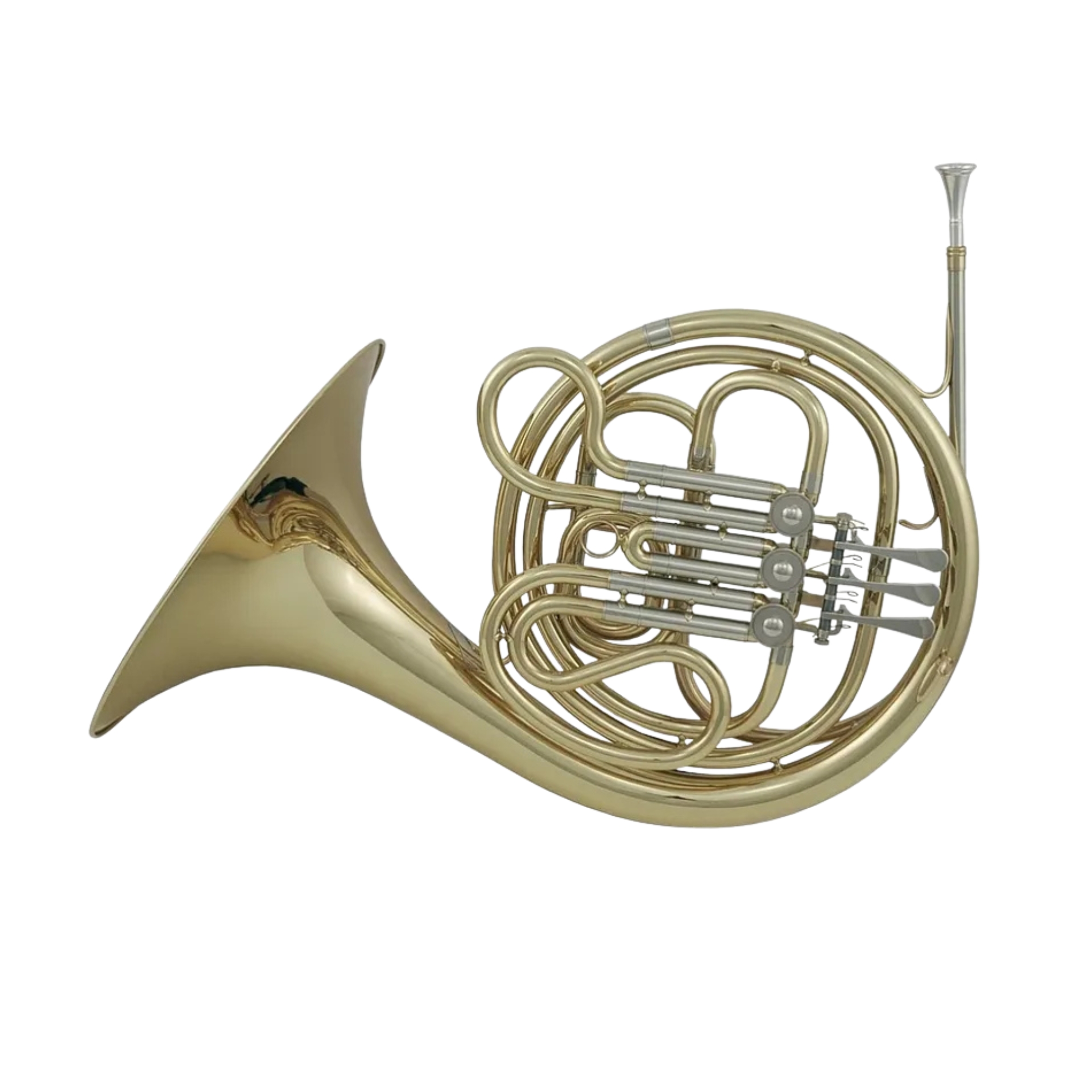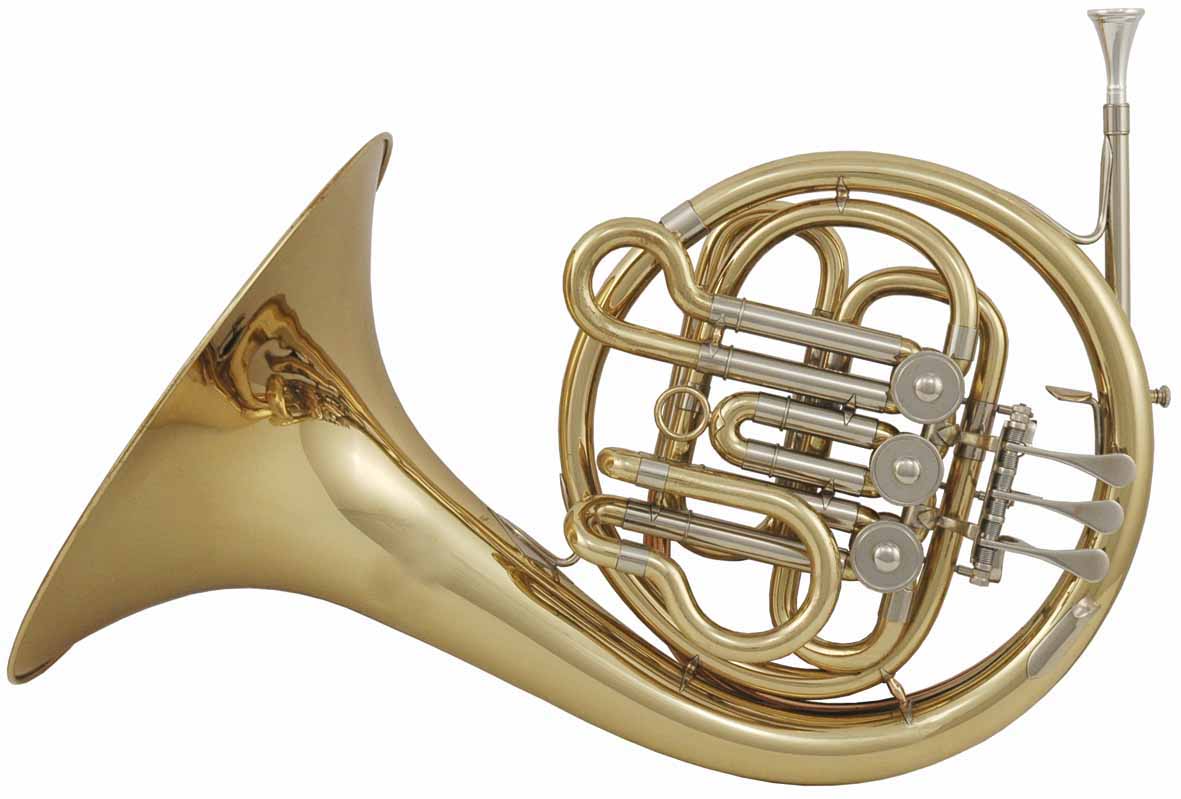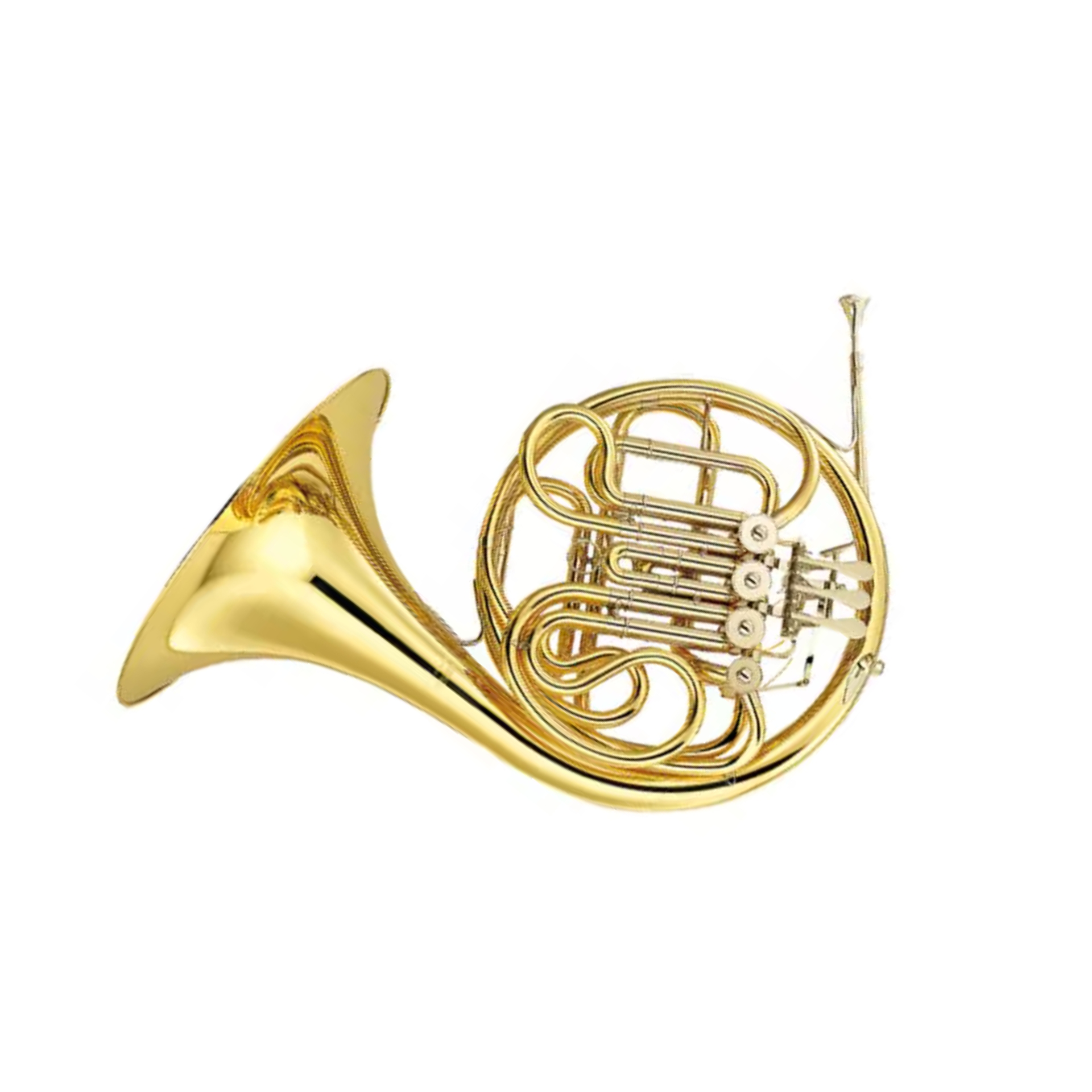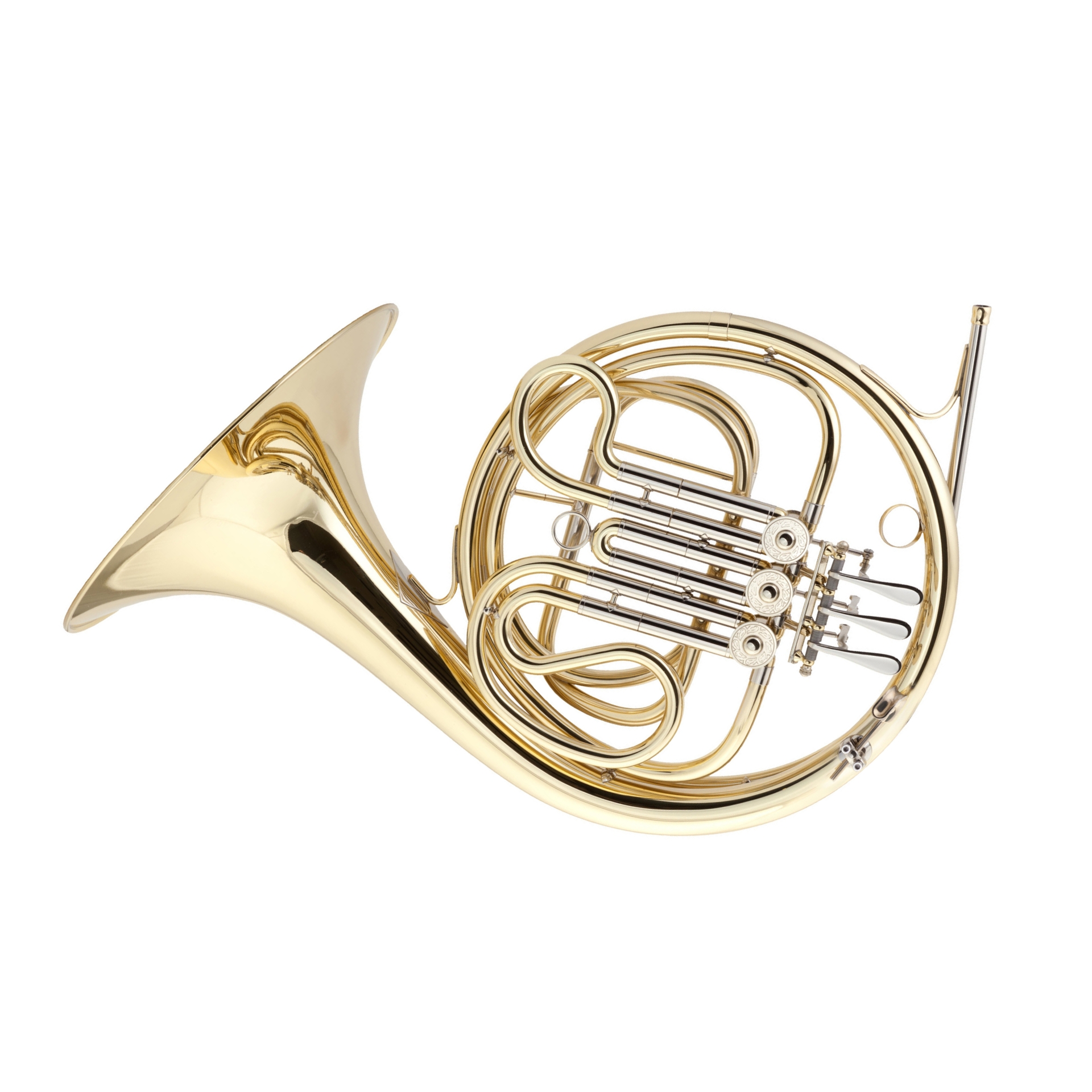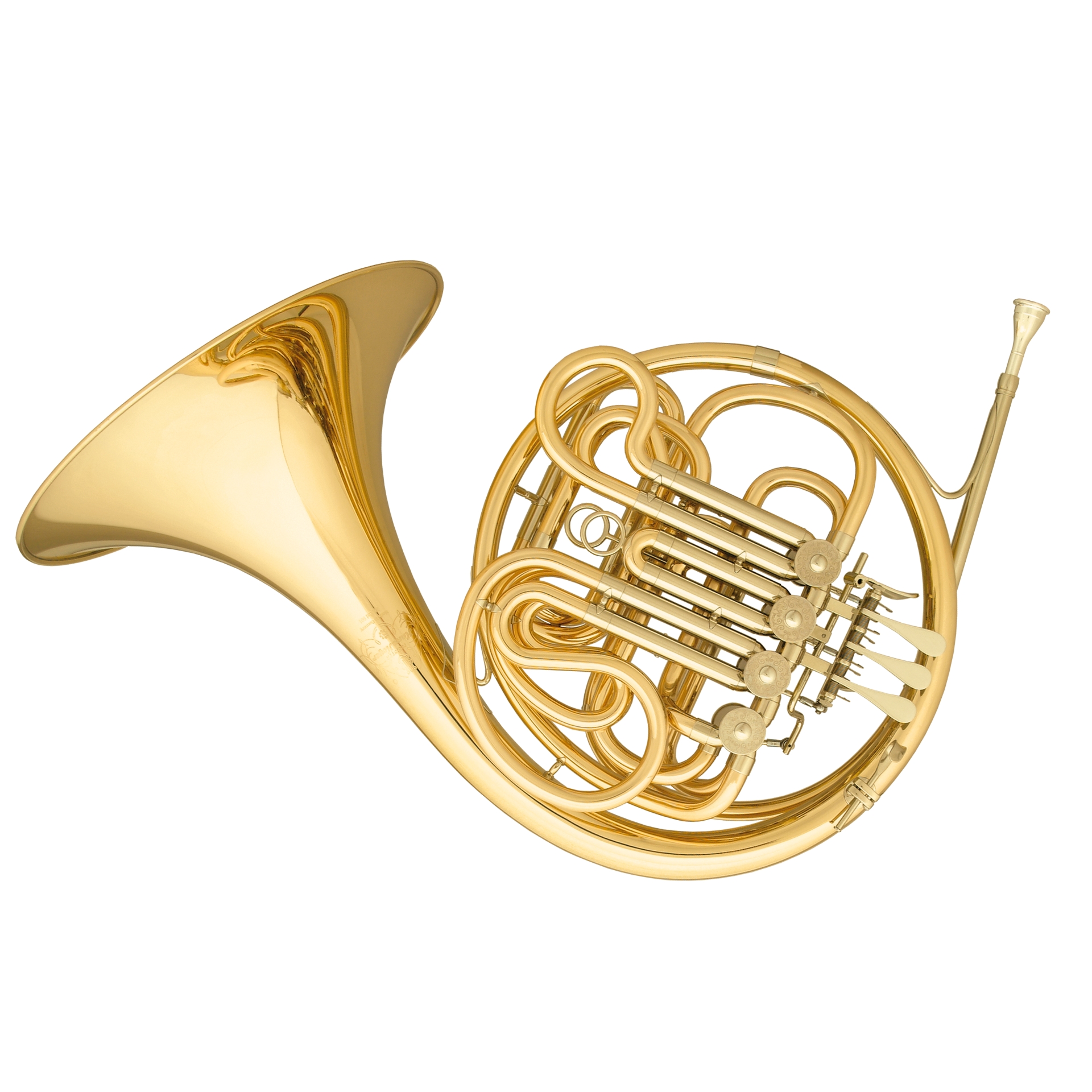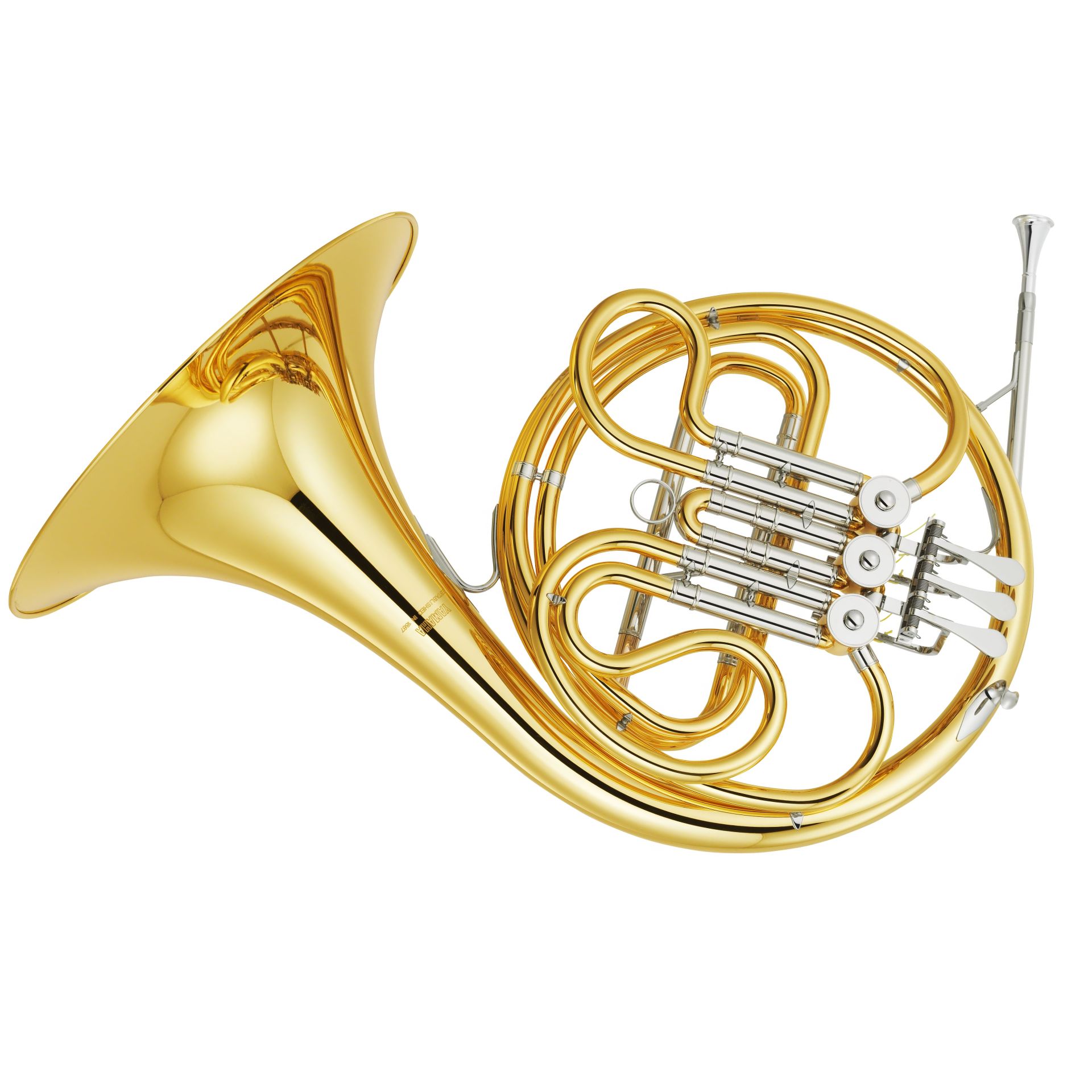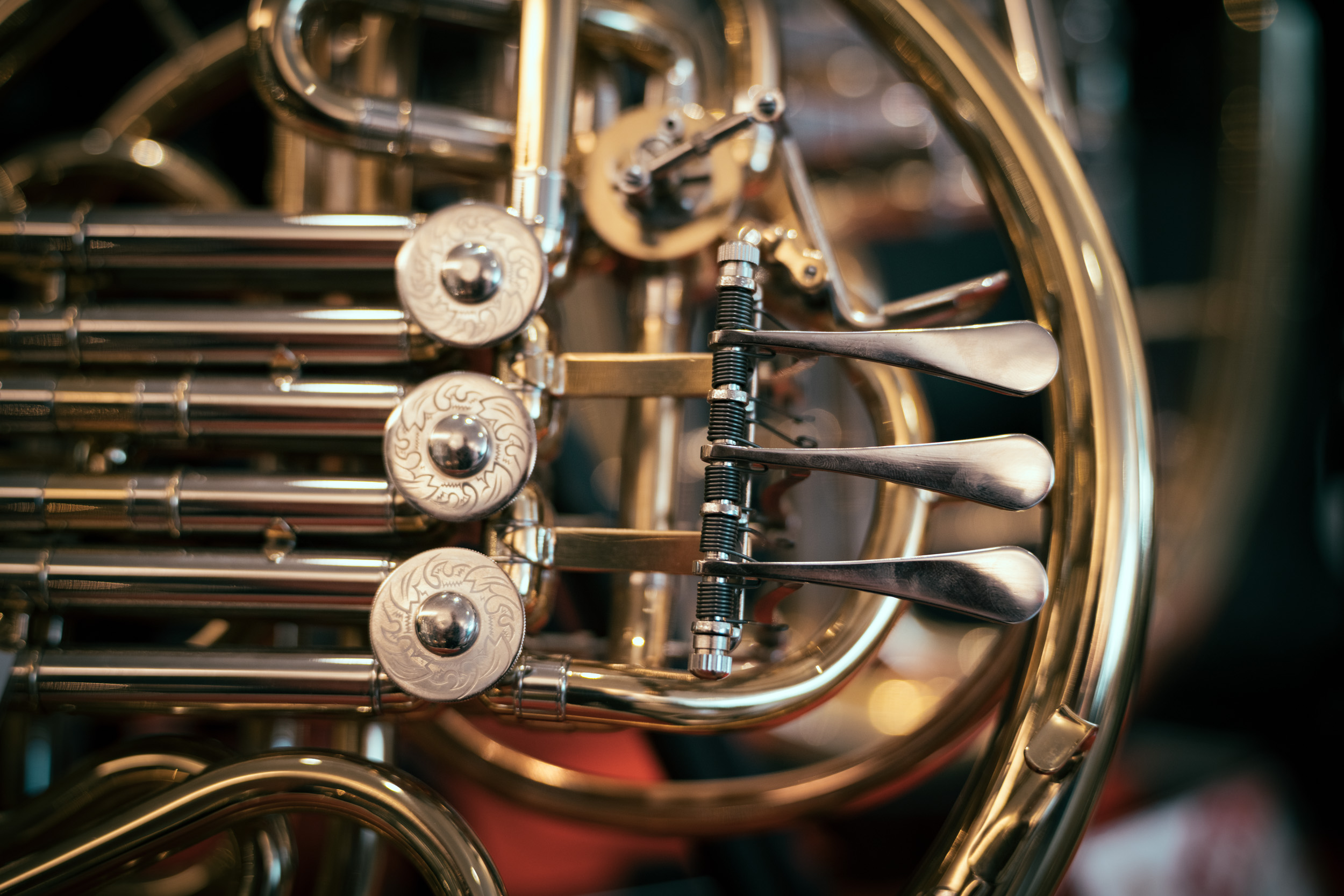
Horns
Horn - The brass instrument with a unique sound
The horn, often known as the French horn, is a fascinating brass instrument that is characterised above all by its warm, full sound and its distinctive shape. The horn plays a central role in orchestras and wind orchestras in particular, as it can cover a wide range of timbres - from soft, mellow tones to powerful, majestic sounds. Whether as a solo instrument, in an ensemble or as an indispensable part of the orchestral line-up - the horn lends every composition a special depth and emotional nuance.
The special features of the horn
The horn is unique among brass instruments. With its long, curved shape and backward-facing bell, it differs visually and tonally from trumpets or trombones. This design, combined with the long length of the tube, which can be up to four metres, makes the particularly soft and warm sound possible. In addition, the horn can produce the finest sound variations through the use of valves and the flexible hand position in the bell (hand-stopping).
The history of the horn
Originally, the horn was used as a hunting instrument. In the Middle Ages and the Renaissance, so-called natural horns without valves were played, which mainly reproduced hunting signals. In the course of the 18th century, the horn developed further, primarily through the use of valves, which made it possible to play a wider range of notes. This development gave rise to the modern French horn, which quickly established itself in the orchestra and became an indispensable instrument for composers such as Mozart and Beethoven.
The different types of horns
There are different types of horns, which differ in their construction and sound character. The most common variants are
Double horn: The most common form in the orchestra, which is a combination of F and Bb horns. It offers great flexibility and is often used in symphony orchestras.
Natural horn: A historical instrument without valves that is based on natural tones and is mainly used in Baroque music.
Bb horn: A shorter horn that is particularly suitable for beginners as it is somewhat easier to play.
Tips for beginners in horn playing
Starting to play the horn can be challenging, as it requires a lot of practice and control over your breathing technique. Here are some tips for beginners:
Practise breathing technique: Regular breathing training helps to achieve stable tone production.
Use teachers and horn classes: Lessons from an experienced teacher or horn classes are important to learn correct technique and posture.
Patience and practice: The horn requires patience, as playing and tone control require a lot of practice due to its special shape. Care of the instrument: Regular cleaning and oiling of the valves ensures a long life and smooth playing.
Use teachers and horn classes: Lessons from an experienced teacher or horn classes are important to learn correct technique and posture.
Patience and practice: The horn requires patience, as playing and tone control require a lot of practice due to its special shape. Care of the instrument: Regular cleaning and oiling of the valves ensures a long life and smooth playing.
Frequently asked questions about the horn
1. is the horn difficult to learn?
The horn is technically demanding, especially the breathing technique and precise control of the airflow are challenging. However, with regular practice and a good teacher, it can be learnt successfully.
2. What types of horns are there?
The most common types are the double horn, natural horn, Bb horn and Wagner tubas. Each type has its own special features and areas of use.
3. how do I look after a horn properly?
The horn should be cleaned regularly and the valves oiled. It is particularly important to protect the instrument from moisture to prevent corrosion.
4. which musical styles use the horn?
The horn is mainly used in classical music, but also in wind orchestras and film music. It can play a leading role in various genres.
The horn is technically demanding, especially the breathing technique and precise control of the airflow are challenging. However, with regular practice and a good teacher, it can be learnt successfully.
2. What types of horns are there?
The most common types are the double horn, natural horn, Bb horn and Wagner tubas. Each type has its own special features and areas of use.
3. how do I look after a horn properly?
The horn should be cleaned regularly and the valves oiled. It is particularly important to protect the instrument from moisture to prevent corrosion.
4. which musical styles use the horn?
The horn is mainly used in classical music, but also in wind orchestras and film music. It can play a leading role in various genres.
5. What does a good horn cost?
Prices vary greatly. Simple models for beginners are available for less than €1,000, while high-quality professional instruments can cost several thousand euros.
Prices vary greatly. Simple models for beginners are available for less than €1,000, while high-quality professional instruments can cost several thousand euros.
The horn is a versatile and tonally fascinating instrument that impresses with its history and musical diversity. Beginners and professionals alike appreciate the unique sound and the expressive possibilities that the horn offers.
Buy Horns at Schagerl:
Large selection: Schagerl offers a wide range of products, from cornets to an extensive range of accessories. This variety means that every musician can discover the right instrument for their style and requirements.Expert advice: Schagerl employs experienced musicians and specially trained staff who offer professional and personalised advice. Whether beginner or professional, every customer receives the support they need to find the perfect instrument.
Best customer service: Customer service at Schagerl stands for reliability and commitment. In addition to personalised advice, customers also benefit from services such as repairs, maintenance and the purchase of accessories, which makes the entire purchasing process uncomplicated and pleasant.


